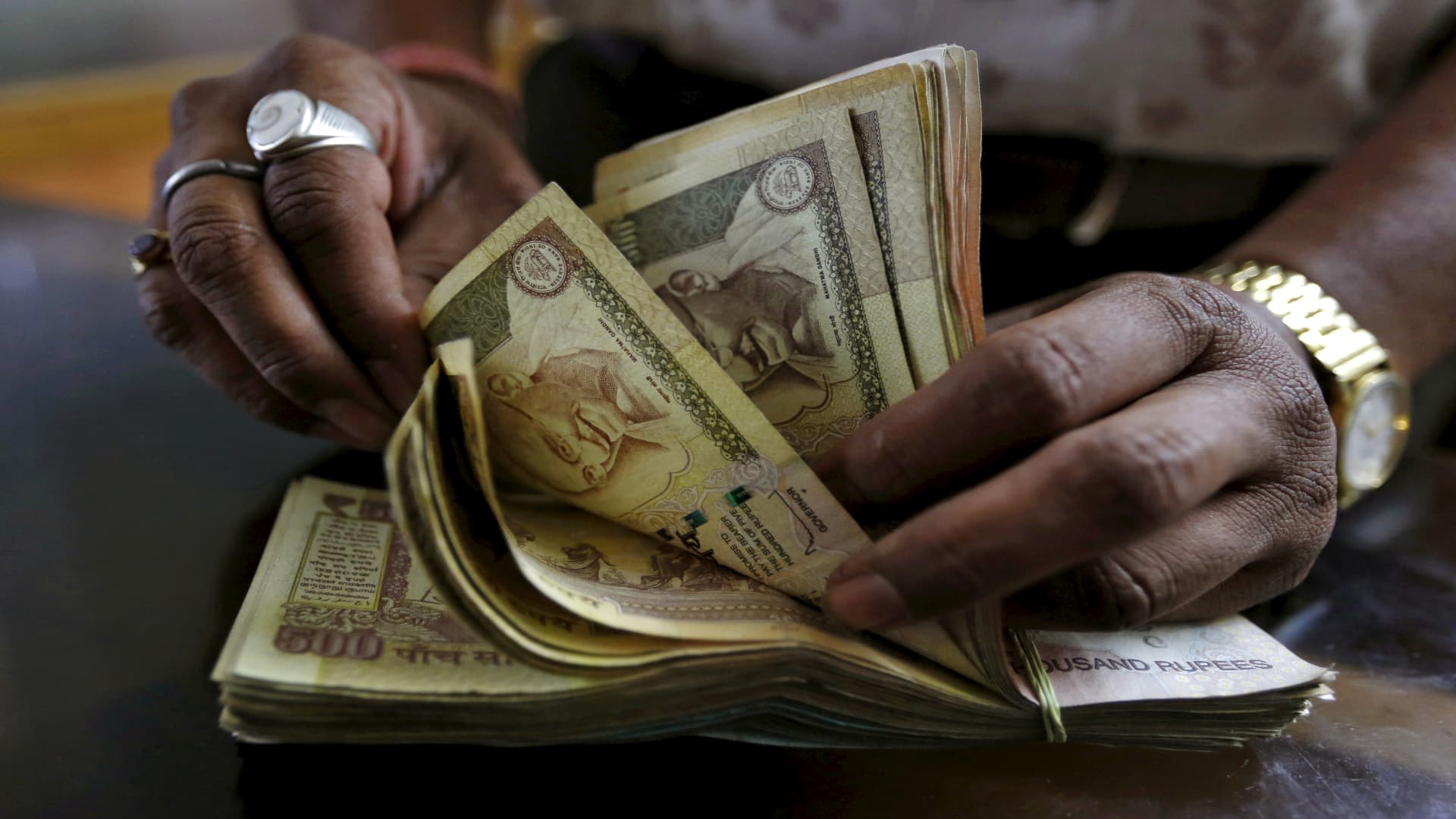
A security guard stands outside the building near signs advertising the International Monetary Fund/World Bank Spring Meetings in Washington, DC, on April 17, 2025.
Jim Watson | AFP | Getty Images
The International Monetary Fund on Tuesday downgraded its growth forecasts for major Asian economies in 2025, citing trade tensions and “high policy uncertainty.”
The IMF slashed its 2025 GDP projections for China and India to 4% and 6.2% respectively, down from its January forecast of 4.6% and 6.5% respectively.
China’s official GDP growth target was set at “around 5%” for 2025, while India projected a 6.5% growth for its 2025 fiscal year running from April 2025 to March 2026.
The IMF also cut Japan’s growth forecast to 0.6% from 1.1%.
Japan has a growth projection of 1.1% for its 2025 fiscal year, also running from April 2025 to March 2026.
On a global basis, growth was lowered to 2.8% from 3.3% for the whole of 2025, with the IMF saying that tariffs announced by the U.S. and its trading partners were “a major negative shock to growth.”
Furthermore, it added that “the unpredictability with which these measures have been unfolding also has a negative impact on economic activity and the outlook”, making it harder than normal for consistent and timely projections.
The IMF forecast comes amid a wider trend of research firms and banks cutting growth forecasts for Asian economies.
Earlier in April, Goldman Sachs economists lowered their forecast for China’s gross domestic product this year to 4.0% from 4.5%, citing impacts of increased U.S. tariffs on Chinese goods.
Natixis too cut its China GDP forecast to 4.2% this year, down from 4.7% previously.
Fitch also reportedly cut its India growth forecasts to 6.2% from 6.3%, citing a worsening global economic environment caused by the intensifying U.S.-China trade war.
Since taking office on Jan. 20, U.S. President Donald Trump has slapped tariffs on imports of steel, aluminum and automobiles, before announcing massive “reciprocal” tariffs on nearly every country in the world on April 2.
Barely a week later, he suspended these “reciprocal” tariffs, leaving only a baseline duty of 10% on all countries except China.
Following a tit-for-tat tariff spat, the U.S. tariffs on China now stand at up to 245% on some items while China has imposed duties of 125% on U.S. imports, vowing to “fight to the end.”
In contrast, Japan and India have taken a more conciliatory stance to Trump, with Japan sending a trade delegation to talk to their U.S. counterparts.
Trump on April 17 had hailed “big progress” on the trade talks, but Japan’s top negotiator Ryosei Akazawa had reportedly returned to Tokyo with no deal, saying that he “made clear to the U.S. that we feel the tariff measures are extremely regrettable. I strongly urged them to reconsider these policies.”
For India, Prime Minister Narendra Modi had met with U.S. Vice President JD Vance on Monday, and a readout from Modi’s office said the two leaders “welcomed the significant progress in the negotiations for a mutually beneficial India-U.S. Bilateral Trade Agreement.”




